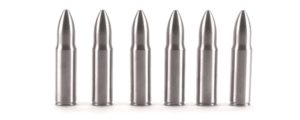
There is no grand prevailing wisdom about how people should vote.
It’s hard enough to get people to show up at the polls as it is.
But once voters show up to cast their ballot, there are competing views about how we should cast our votes: in this case, to plump or not to plump.
As former Vancouver City Councillor Anne Roberts wrote on a chilly November 14th day, three weeks after Vancouver’s 2014 civic election …
“In the end, the vast majority of voters are going to do what they typically do in Vancouver’s dysfunctional at-large voting system: they’re going to vote slates. People will mostly select 5 to 8 Councillors from the party of their choice and then, perhaps, vote for one or two others. Given there are too many candidates and parties to become fully informed, it’s not a bad strategy.
That is, unless you know about plumping. For individual voters, plumping is really the only way to boost your voter power. Plumping is when you cast votes for your civic party of your choice, only, instead of the full 10. The advantage is you focus your voting power on the ones you really want to win, and don’t dilute the power of your vote by voting for someone who could end up beating your preferred candidates.”
Voter turnout in British Columbia civic elections is generally well below 40%.

In 2005, 32% of eligible voters cast their ballot in that year’s Vancouver civic election — when Non Partisan Association Mayor Sam Sullivan and a majority NPA Council were elected to office — with only 31% bothering to vote in the 2008 change civic election, which saw the newly formed Vision Vancouver civic party elected to a majority at Vancouver City Hall. By 2011, a whopping 34% of eligible Vancouver voters found their way to the polls on election day, Saturday, November 19th.
Counting the Votes
Where there are multiple Council positions, 10 in Vancouver, to be filled, the votes on each ballot are counted as being of equal value to each other. Even though a voter might have a distinct order of preference among the candidates there is no mechanism for such preferences to be shown on the ballot.
Candidates are elected consecutively according to who receives the largest number of votes. There is no pre-determined percentage of the overall vote required to be gained before a candidate is elected so a candidate can be elected with a very much smaller percentage of the vote than under any other electoral system.
Plumping
Plumping allows voters to vote for fewer than the number of candidates to be elected. It permits voters to concentrate their voting power on those they support, rather than being constrained to also vote for those they oppose. Rather than voting for all 10 Council positions, a voter may choose to vote for simply one, two or more should they wish, in the City of Vancouver, where slates tend to run, voting only for your party of choice.
In Vancouver, the at-large system is in some ways opposite to the first-past-the-post system in the provincial and federal elections. At-large means there are no “neighbourhood ridings” — sometimes called wards — within the municipality or regional district, as is the case in every other province, save B.C..
Aside from casting one ballot for Mayor, voters will vote from a pool of candidates, and select form one candidate to however many candidates they choose to sit on Vancouver City Council, Park Board or School Board.
Eligible voters in the City of Vancouver are allowed to select as many candidates as there are seats on the respective councils, but should they?
In 2022, the answer to that question is a firm, “No”.

Having spoken with strategists working within the 10 civic parties offering candidates for election in 2022, civic campaign managers are recommending their voters “plump their ballot” — voting only for the candidate(s) they really want to see elected. “Pro-plumping” strategists are telling their voters that giving a vote to someone you really don’t care about, simply to fill the ballot, weakens the position of those you really do want in. Too many votes for a candidate running with a party you don’t support not only weakens your vote for the candidates you want to see win on election night, it dramatically increases the likelihood that your favourite candidates may lose, as a broad swath of the limited number of voters expected to turn out in this year’s October municipal election, in casting a vote for an “add on” candidate enhances that candidate’s ability to actually triumph at the polls.

Even respected Vancouver civic affairs journalist, Charlie Smith, editor of The Georgia Straight, is recommending Vancouver voters “plump their vote”, in this instance when casting a ballot for candidates running for office to become a Board of Education trustee on the Vancouver School Board.
“The only sensible choice for supporters of mask mandates — and safer schools for the many kids with immunocompromised family members — is to only vote for Dr. Zeidler and withhold voting for the NPA, ABC Vancouver, Vision Vancouver, COPE, OneCity Vancouver, Green, Progress Vancouver, or any other party that’s putting candidates up for school trustee.
Voting for candidates other than Dr. Zeidler lessens her chance of winning and promoting actions that will save lives of school students, staff, and their families.”

Mr. Smith must have read Peter Babel’s Meridia article on bullet voting, which is what they — unsurprisingly — call plump voting down south …
Basically, bullet voting — also known as single-shot voting or plump voting — is a tactic used when voters who could vote for multiple candidates actually vote only for the one candidate whom they most want to see among the winners. Imagine a municipal election, for example, in which 65 candidates are running for ten open seats and voters can vote for only ten candidates. Ultimately, the election will produce 10 winners, yes, but using the bullet vote tactic the voter increases the total vote count for the candidate s/he most wants included among the 10 winners — without increasing the vote count of any of the other candidates running for office. By plumping their ballot, the voter strategically avoids inadvertently helping any other candidate gain more votes than the candidates they truly prefer, and whose win they want to secure more than any other.

Fans of plumping argue that most people are not familiar with enough candidates running to be able to cast completely informed votes.
So many people want to avoid casting ballots for people who aren’t necessarily deserving of that vote. All of which nicely plays into the hands of seasoned campaign strategists operating behind the scenes in this year’s Vancouver municipal election, but who are “in control” of this year’s all-important 2022 Vancouver municipal election campaigns.